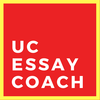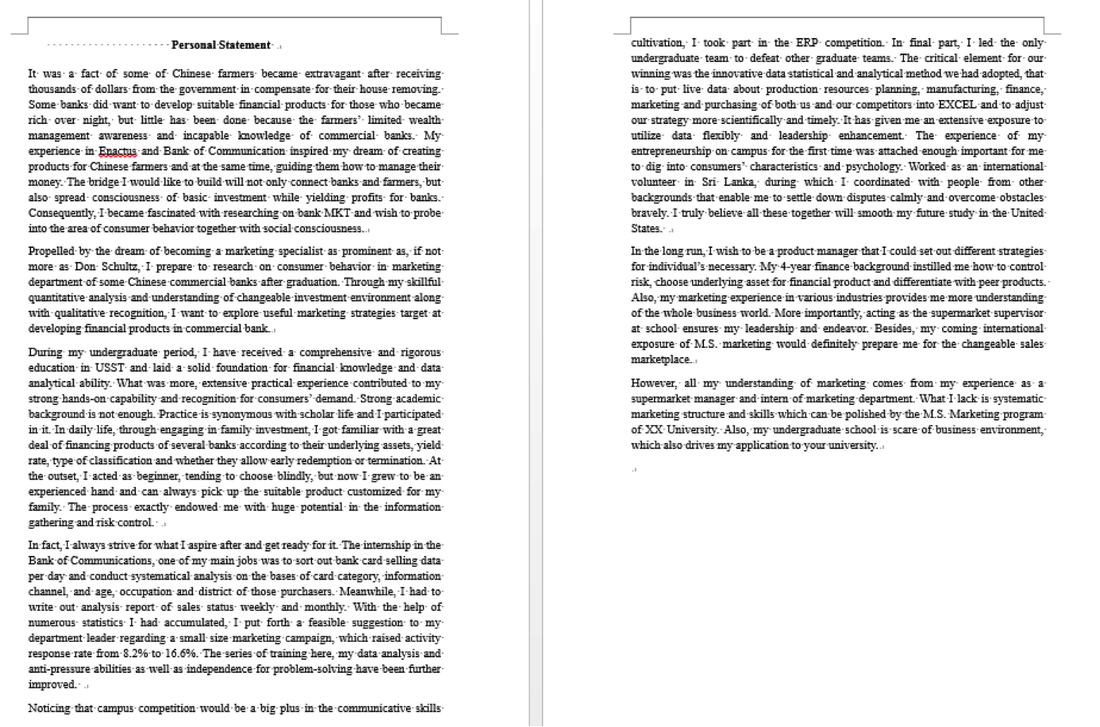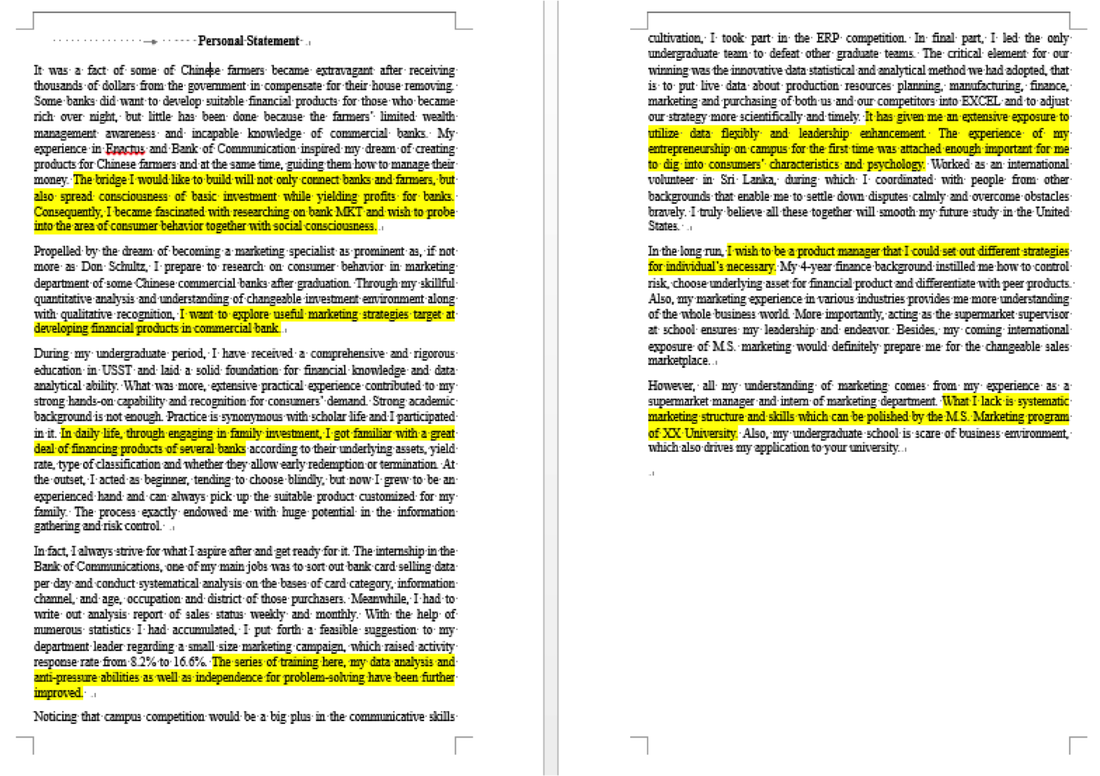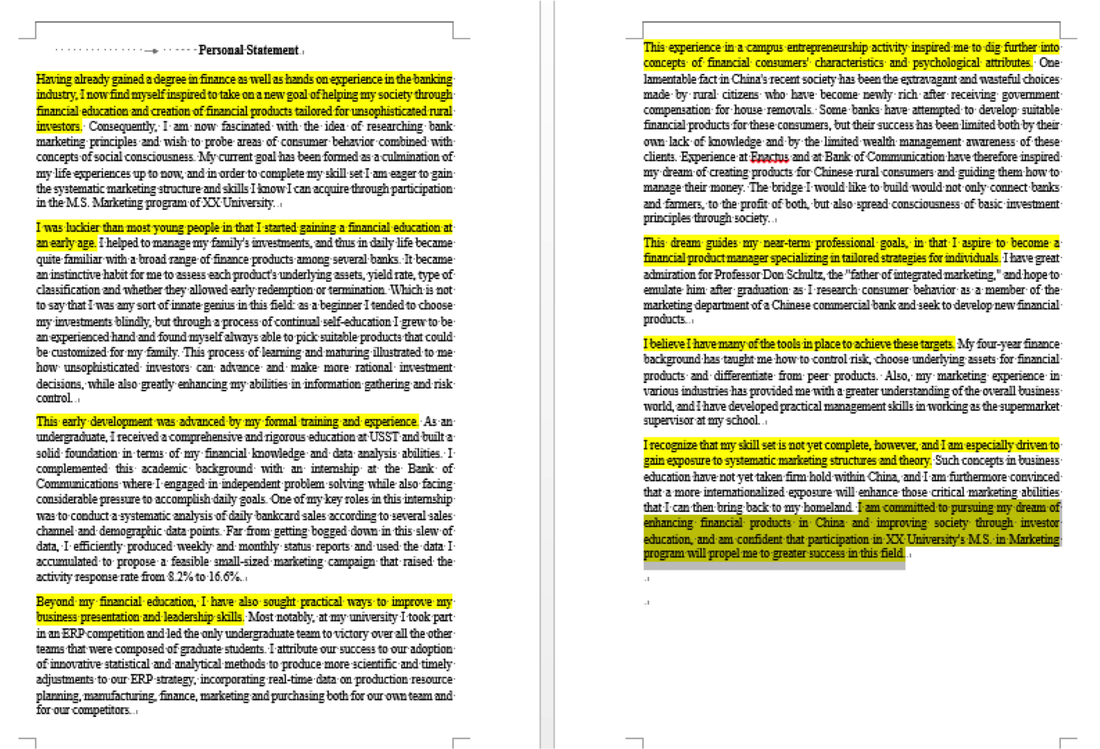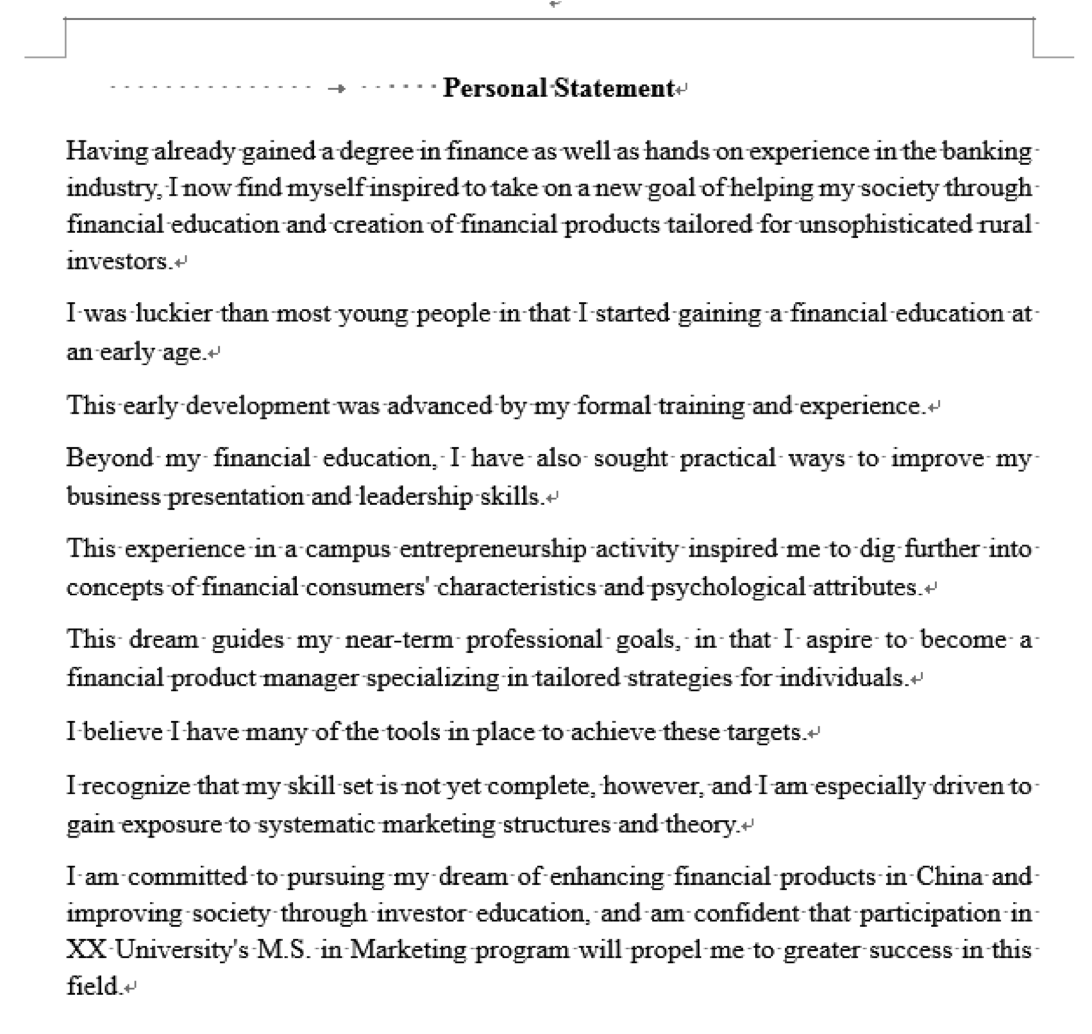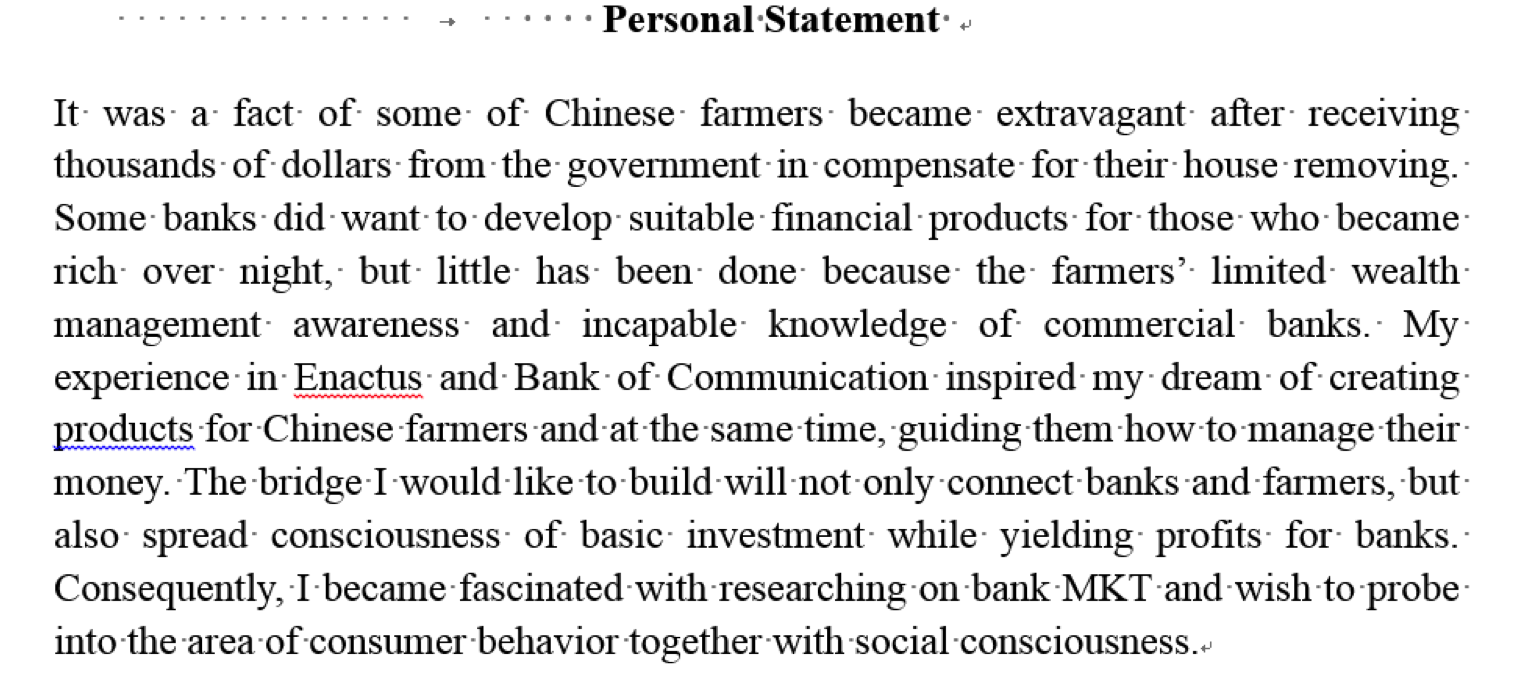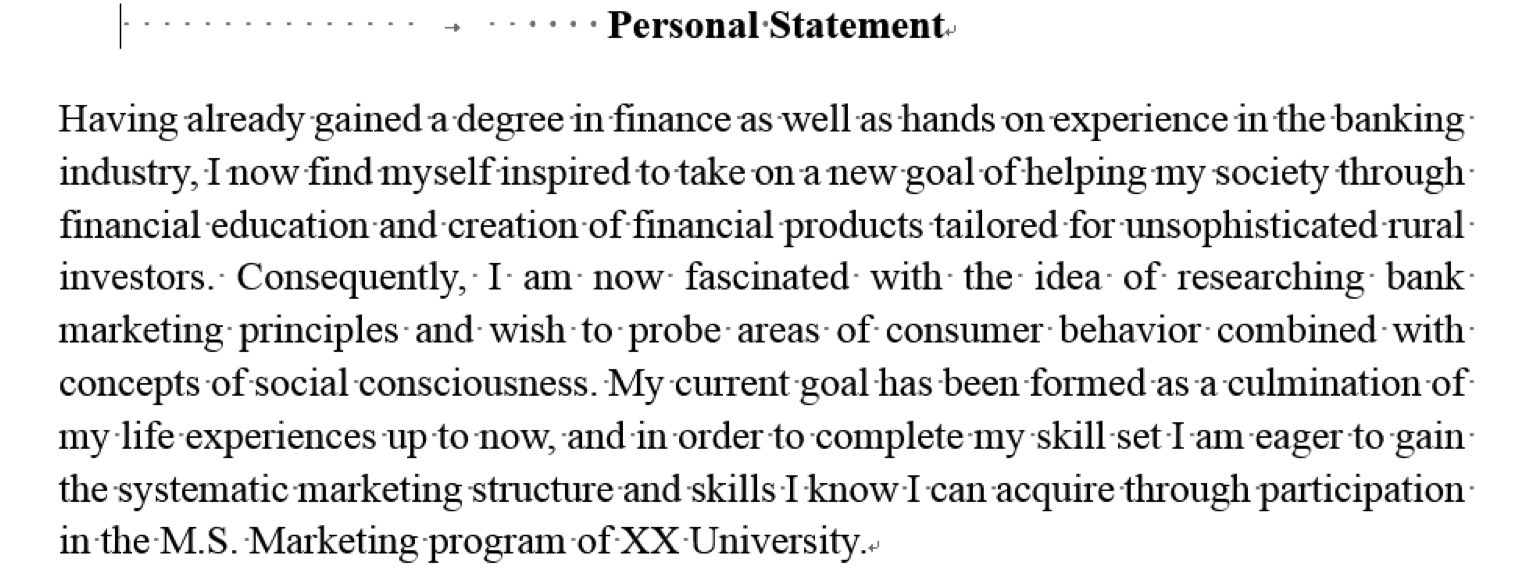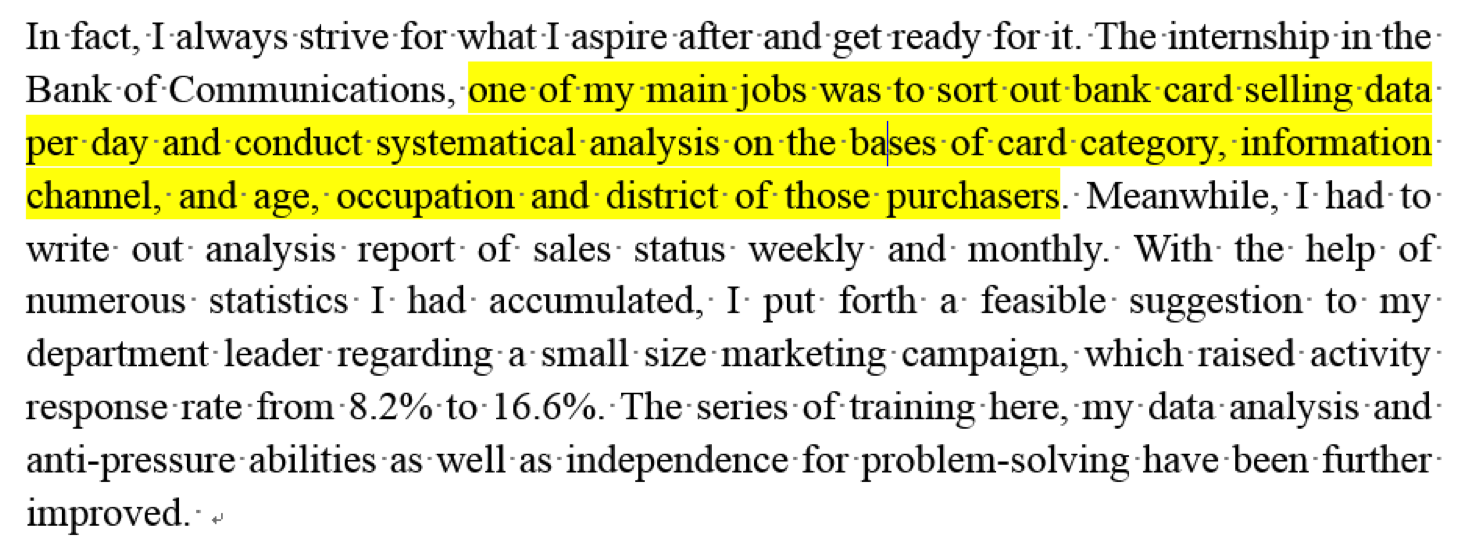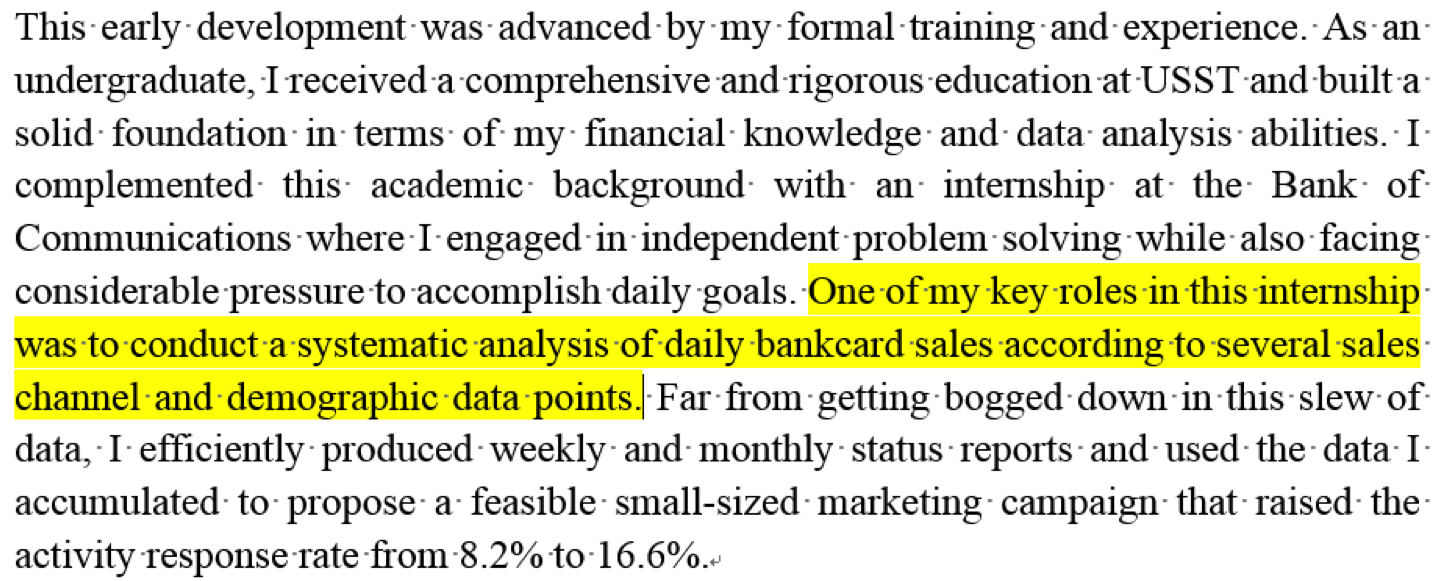Personal Statements: General Principles & A Sample Critique
By Jason Skinner
MBA 2002 University of Texas at Austin (McCombs School of Business)
Senior Editor at TopAdmit
MBA 2002 University of Texas at Austin (McCombs School of Business)
Senior Editor at TopAdmit
1. What’s the purpose of a “statement of purpose"?
- In their application package, graduate and professional schools often require some sort of written statement, often called a "statement of purpose," "personal statement," or "letter of intent.“
- Some statements require rather specific information; for example, the applicant's intended area of study within a graduate field.
- Still others are quite unstructured, leaving the applicant free to address a wide range of matters. The importance of the statement varies from school to school and from field to field.
First determine your *own* purpose
- As you start out in writing your own SOP, first ask yourself what you want to accomplish with this essay. Usually the purpose is to persuade the admissions committee that you are an applicant who should be chosen.
- Whatever its purpose, though, the content must be presented in a manner that will give coherence to the whole statement.
- By keeping this objective constantly in mind, you will be able to sift through all of your possible statements and identify what extraneous material should be left out.
- Also pay attention to the audience (i.e., the admissions committee) throughout the statement. In particular, keep in mind their “level”--your audience is made up of professionals in their field, and you are not going to tell them how they should act or what they should be. You are the amateur.
Determine the content of your statement
- Be sure to answer any questions fully. Analyze the questions or guidance statements for the essay completely and answer all parts.
- Specific things that graduate and professional schools are interested in usually include the following:
- Your purpose in graduate study.
- The area of study in which you wish to specialize.
- Your intended future use of your graduate study.
- Your unique preparation and fitness for study in the field.
- Any problems or inconsistencies in your records or scores, or any special circumstances that has affected your performance.
- "Why do you wish to attend this school?“
- Above all, this statement should contain information about you as a person.
2. Do’s and Don’ts
|
DO'S
|
DON'TS
|
3. One type of useful structure
- Important paper or thesis project you completed, as well as anything scholarly beyond your curricular requirements.
- Work experience
From http://www.cs.ucla.edu/graduate-admission-frequently-asked-questions/
“While a Ph.D. degree prepares students not only for careers in research and academia, Ph.D. applicants typically demonstrate significant achievement in and/or potential for advancing knowledge through independent research and teaching.”
4. Turning to our sample critique
- Section 1: Introduce yourself, your interests and motivations
- Section 2: Summarize your undergraduate and previous graduate career
- Important paper or thesis project you completed, as well as anything scholarly beyond your curricular requirements.
- Work experience
- Section 3: Discuss the relevance of your recent and current activities
- Section 4: Elaborate on your academic interests
From http://www.cs.ucla.edu/graduate-admission-frequently-asked-questions/
“While a Ph.D. degree prepares students not only for careers in research and academia, Ph.D. applicants typically demonstrate significant achievement in and/or potential for advancing knowledge through independent research and teaching.”
4. Turning to our sample critique
All the raw materials are here
- In the sample essay, we have great raw materials for addressing each of these questions.
- The main thing I have done is to reorganize a bit to highlight these areas . . .
- . . . while also putting it into a narrative form that moves forward from past to present to future.
Make It Easy to Scan
- Make sure your main points stand out at the top of each paragraph
- And try to put them in a logical sequence
- To test this, try removing everything except the topic sentence of each paragraph (and the last sentence of your final paragraph, where you should have a firm conclusion if possible).
- In the following slides, take a look at the “before and after” where I have main points highlighted
- And after see how I’ve removed everything except topic sentences and final concluding sentence to see how it reads.
Give a strong summary paragraph at the top
- For many essays, it’s a good idea to try to at least give a preview of the overall message within the first paragraph.
- This is a frequent approach used in American-style essay writing: "Tell them what you're going to tell them. Then, tell them. Then, tell them what you've told them.“
- On the other hand, don’t overdo it: leave them hungering for more.
- In the following two slides, take a look at the “before and after” of the first paragraph of the candidate’s essay.
Trim unnecessary details
- Everything should go toward answering key questions in the admissions committee’s mind, while also advancing the narrative in an interesting way.
- I thus trimmed some of the extra details and summarized instead.
- What's important is the final result, not so much the detailed process that went into producing it. (Unless that process is indeed the thing that’s useful to highlight.)
- In the following two slides, take a look at the “before and after” of one particular such discussion.
Be careful with “name dropping”
- If you’re going to “name drop,” make sure you do so in an appropriate way that indicates you are familiar with the person you are citing and understand his or her significance to your goals.
- In this case, the candidate said his ambition of “becoming a marketing specialist as prominent as, if not more as Don Schultz.”
- Now, the admissions committee would be well aware that Dr. Schultz is Professor Emeritus of Northwestern University, a widely renowned author who is lauded as “the father of integrated marketing.”
- It would be better for the candidate to express admiration for Dr. Schultz and indicate why he provides inspiration. Simply to drop his name doesn’t mean much; and to claim that the candidate could become more prominent than the professor comes across as “boastful” at best and possibly a bit ignorant at worst.
5. A few writing tips
- Keep a journal
- “Brainstorm”
- Use the rubber duck approach
- Get a second pair of eyes; “explain it to me like I’m a five year old.”
- Get professional help!
Now let’s talk about this, shall we?
- Briefly introduce yourself, your interests and motivations
- Summarize your undergraduate and previous graduate career
- Tell about your work experience
- Tell how your recent and current activities are relevant to your upcoming graduate studies
- Tell us what are your academic interests
